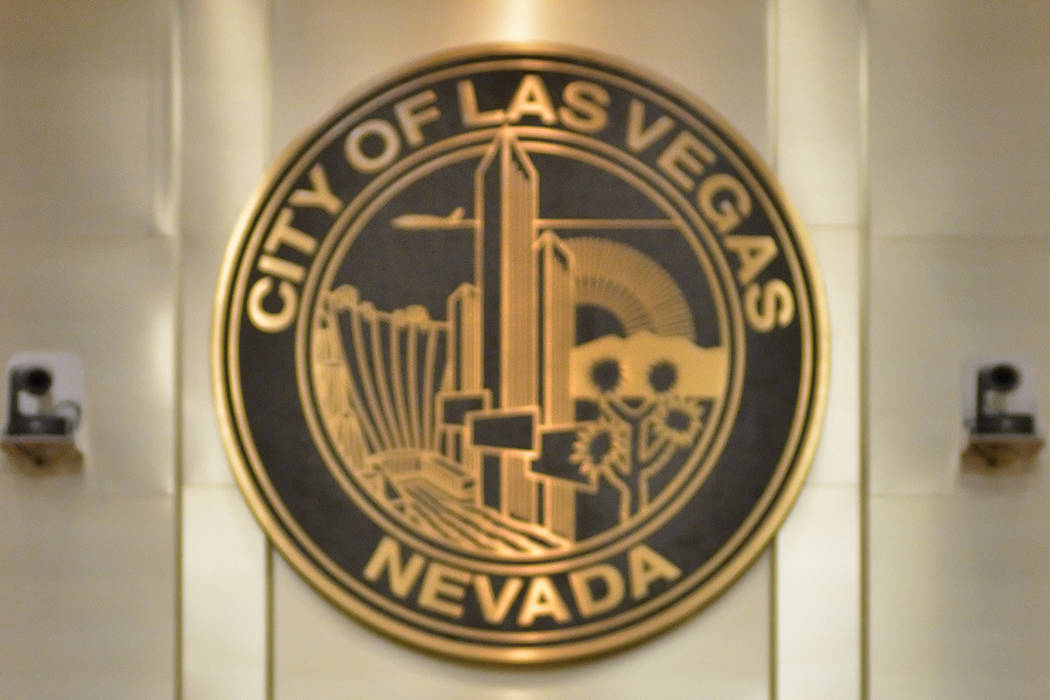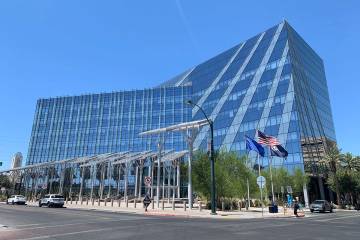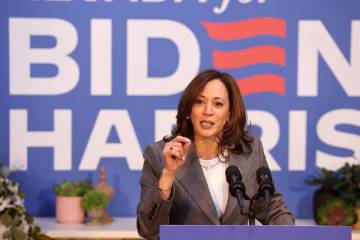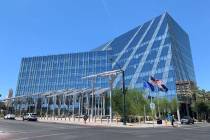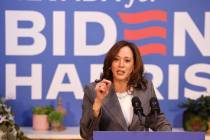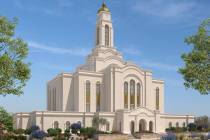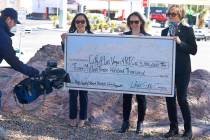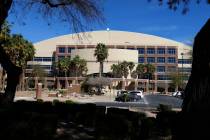Las Vegas projects budget surplus, but officials remain cautious
Las Vegas leaders are projecting a $5 million budget surplus for fiscal year 2020, and key markers indicate an economic expansion that has lasted for a decade will continue.
On its face, the tentative $614 million general fund budget would appear to offer reasons for enthusiasm: Consolidated tax revenues are projected to increase 5 percent and assessed property values are rising at an even faster 9 percent clip.
Still, city officials have remained cautious.
“The budget now basically is in expansion,” Chief Financial Officer Gary Ameling recently told the City Council. “But we are likely to see at some point that expansion end.”
While the city’s short-term outlook is positive, a longer view shows potential trouble ahead. Expenses are anticipated over the next five years to outpace revenues by enough to plunge Las Vegas into a $17.4 million deficit by 2025, officials warn.
As such, the forthcoming tentative budget calls for attention to priority areas, primarily bolstering public safety staffing, while maintaining the practice of freezing non-critical positions to plan for a tougher road ahead and to avoid layoffs.
City officials have been hopeful that by getting out in front of even a moderate slowdown, they will successfully weather the storm.
“We’re doing the best that we can,” Ameling said. “We don’t have it 100 percent dialed in yet, but we’re making progress in getting where we’re trying to get to.”
Reliance on tax revenue
The city projects $619.6 million in revenues for fiscal year 2020, 4.3 percent better than the current year, due to ongoing growth in consolidated and property tax revenues, according to Ameling’s budget presentation on April 3.
Consolidated tax income, which is principally sales tax, is expected to rise for its 10th straight year, continuing its rebound from a recession-era low of $201.5 million in 2010 to a projected $336.2 million in 2020.
The two tax revenue sources comprise more than 72 percent of the general fund, an overwhelming contribution that officials worry will be particularly sensitive to economic fluctuations because the city relies so heavily on tourism and tourism-related construction.
In the wake of the Great Recession, the city laid off 200 employees in a single day and sliced its budget by 20 percent over a three-year period starting in fiscal 2010 — dramatic moves that officials don’t want to replicate.
The city’s $5 million surplus, achieved through cost savings from keeping several dozen positions unfilled, will increase the rainy day fund to $123.7 million and maintain the policy of holding reserves at 20 percent of operating costs.
The city plans to direct two-thirds of $614.6 million in projected spending to public safety. Its contribution to the Metro Police Department, jointly funded with Clark County, is expected to increase as much as $9.6 million year-over-year to add 50 officer and 33 civilian positions, according to the budget presentation.
Las Vegas also expects to staff 13 positions at Fire Station 103 and add 13 more city marshals to its roster while hiring eight administrators in the Department of Public Safety to do work typically performed by marshals, to keep the officers in the field.
In total, the tentative budget for fiscal year 2020 calls for 42.5 new city positions – costs that Ameling says will be offset by an ongoing hiring freeze.
Positions on hold
By freezing 77 non-critical positions, just seven of which are in public safety, the city has saved $7.6 million in the general fund and needs to freeze roughly 10 more to reach its target of $10 million in savings, according to Ameling.
“We’re trying to get to the point now where instead of being just opportunistic, we’re going to be much more strategic,” he said.
So far, that strategy has enabled the city to circumvent possible layoffs and address critical staffing areas, he added. Further, as positions become vacant that are less important than those on hold, the city intends to swap them to continue its practice of filling priority roles.
Since 2008, the number of public safety hires in Las Vegas has grown 12 percent, but its non-public safety workforce has shrunk by 19 percent. And there are more than 100 fewer full-time employees in the city now than in 2008, when the workforce hovered around 2,800.
Ameling said that top officials have been challenged by how to reduce less-critical departments in order to bankroll needs in public safety and in dealing with homelessness, where he estimated nearly $20 million was spent this fiscal year excluding capital funds.
Even so, the tentative budget does not address ongoing costs associated with the city’s Corridor of Hope courtyard project. City officials are cautiously optimistic that its proposed bill will pass this legislative session to generate funding for the initiative through increases to sewer fees and real estate transfer taxes.
“Or we’re just going to be displacing more and more of our budget into activities that rob services and frankly endanger the public,” Councilman Bob Coffin said.
Capital improvements
A $4.5 million medical clinic in the courtyard is one of 64 new capital projects in the queue during the coming fiscal year, according to Jorge Cervantes, chief operations and development officer.
Among other anticipated priorities, the city plans to spend $9.2 million on fire service apparatus and equipment replacement, $5 million on downtown courthouse furnishing, security and more, and $5 million on strategic land acquisition.
The tentative budget is due to the state by Monday. Another hearing is set for May 20, ahead of the final budget deadline of June 1.
Contact Shea Johnson at sjohnson@reviewjournal.com or 702-383-0272. Follow @Shea_LVRJ on Twitter.



